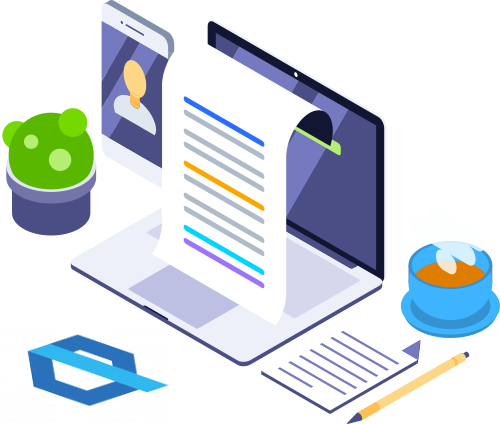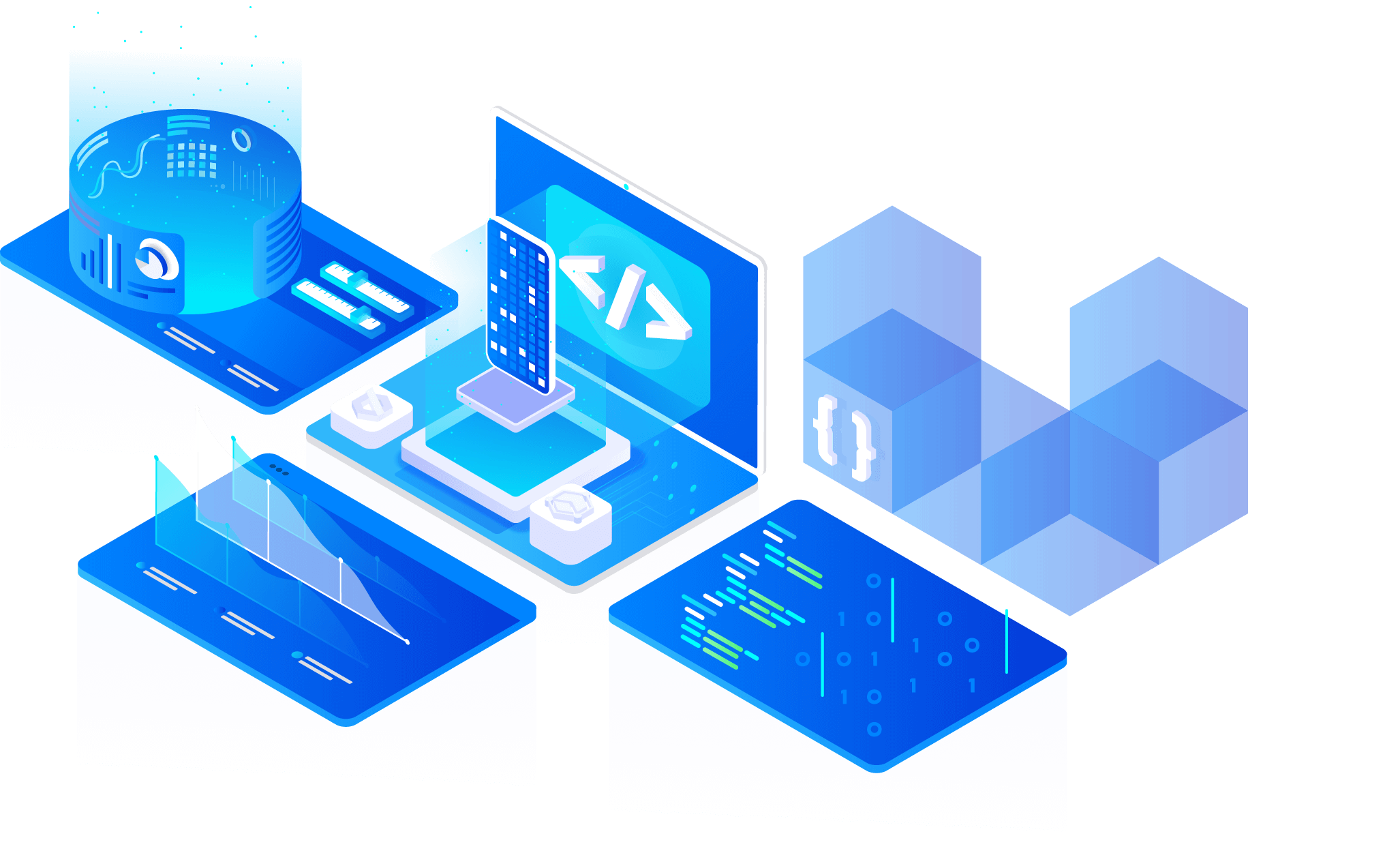The process
We'll be there from the beginning and during all the life cycle of your platform.

Audit & Report
We will come to your company, audit your current process, make a report that you will agree and sign
Advice, Planning, & Budget
We will advise what should be the best solution to your objective, then we will build a plan and budget for your project, if accepted we will proceed for the development.
Development, Test, & Production
Finally we will proceed to build, test and put in production your platform
The mayor problems
This is some of the problems and conflicts you may face when you'll build software in the traditional way
Budget
- What it begun with a normal budget usually becomes an unxpected black hole of money eater
- "Flexible" Budgets doesn't allow you keep a realistic reserve of money for the project
- "Extra meetings" are never calculated into the project and you will end up paying for
Support
- Most of the agencies developping will never offer constant support for their own work.
- Compiled modules/cores or code can not be supported by the next IT company
- No freedom to choose a different support
Kidnapping
- The use of propertary licenses like Microsoft/Oracle/Google/Amazon will attached your company to theirs for ever.
- License price change, or Lincese agreement updates will often drive to more expensive monthly fees or more terrible consequences.
- Data that doesn't follow world wide open standards, and that only works with exclusive licenses.
Transparency
- Not all developers will allow you to see the costs of their operations.
- Hidden costs will popup.
- Outsourcing behind your back in India or China where your data and code will be replicated and stolen
Our solution
Keep it simple, transparent and with a fixed budget
Open Source
The use of software and platforms that can't be changed against your company interests or business core
Industry standards
The usage of tools and software that belongs to the industry standards and not little markets or products that may risk your company continuity
ROI Budgets
Yes we can build anything with unlimited budget, however we'll find you the best balance between budget and return of investment, in short and long term, we will also foreseen a flexible structure that can be adapted in case that your business finances go below average
On premises without comprises
No more AWS or Google Cloud dependency, we will avoid those dependencies as much as we can, and we'll build a system that can be place in any local and public cloud data center
No shortcuts
If we can't use the best solution, then we will avoid the usage of low quality resources that can compromise the results of your software
GDPR / CCPA Ready
We will make your solution GDPR and CCPA ready, from the ground up
API Ready
You are not alone, and other business and services will requiere to connect to your company services securely and indirectly, an API will be at the base of all our projects
Support and full care
Cloud, Server management, user support, changes, updates, security and patches all handle by us. A long relationship between your company and RGW will be the base of the software lifecycle
Your project road map
Step by step
- Mandatory
- This process will reveal potential problem areas, risks, weaknesses as well as direct opportunities for improvement in all aspects of the process.
- Mandatory
- In this document you'll find: Scope of the Audit Engagement, Source of Management’s Representation, Objectives of the Audit, Source of the Criteria, Findings, Conclusions and Recommendations
- Optional
- In this final document a realistic budget, time, features, and objectives are stablished, once signed and prepaid at least 35% of total fees for the project, we will proceed to kickoff the project
- Mandatory
- A quick start meeting between your team and ours in order to sync agendas and explain our ERP and fast communication channels
- Mandatory
- A development and testing environment is reproduce as close as possible as the production stage
- Optional
- Database architecture focuses on the design, development, implementation and maintenance of data that store and organize information for your project
- Optional
- Back end development refers to the server side of an application and everything that communicates between the database and the final user interface.
- Optional
- Front end development manages everything that your end users visually see first in your application.
- Mandatory
- Testing, Quality Assurance,and Quality Control includes activities that ensure the implementation of processes, procedures and standards for the intended requirements.
- Mandatory
- Is the sum of the stages of development and maturity for a piece of computer software.
- Mandatory
- phase generally begins when your software is feature complete but likely to contain a number of known or unknown bugs
- Mandatory
- is a beta version with potential to be a stable product, which is ready to release unless significant bugs emerge.
- Mandatory
- Also called production release, the stable release is the last release candidate which has passed all verifications/tests.
- Optional
- An online documentation will be handle at the very end of the project, after a full payment of the project has been honored
Case Studies
Clients and Partners cases
Frequently Asked Question
Below we’ve provided a bit of our service for software development. If you have any other questions, please chat directly with us.
Which markets have you develop for?
Our previous works are among many markets, just to mention a few: Banking & Insurance, Maritime Logistics(RORO,CORO,Parcels),Belgian customs,Health,Research,Energy(Renewables),Big data,Academic, and Military
How fast can you build an App?
It's a gray area, but we can say that we have developped, tested and published small apps in matter of days, some other projects have take up to 2 years to see the light.
The typical elements that may slow down the development are:
- - You, or your team's disponibility.
- - Changes or new requests in the middle of the project.
- - Missing key information during the audit.
- - An unclear objective of the software purposes.
- - Other IT Parties.
- - A bad request from you or your team's.
How expensive can a tailored software development get?
Very expensive!, A personlized SaaS its not a cheap solution, however there are ways to flattern this curve using frameworks or base systems, like NIZU, Rocket Chat, NextCloud, or CodeIgniter
Is tailred software SaaS the right answer for everyone?
No! A tailored in-house software should be the last choice, and only chose it when you have exhausted all exisiting options in the market. The main reason is not the initial cost, but the cost in the long run.
How do you calculate the pricing?
Basic pricing starts being calculated per hour of work made by any team of the project, for example a senior developer can from 60 to 120 eur per hour, an UI/UX goes from 35-59 euros per hour, and so on, with our ERP we put the hours need it to complete a task and the system calculates the hours worked by each member of the team.
I just need a developer, why is the project costing that much?
If you think that you just need a developer, then you don't need us, best option in that case is to hire a developer and tell her/him what do you want them to do.
A well structured project, that needs to be mantained, updated, patched and modified in the future needs to have at least the following elements
- Project Manager
- Software Developer
- Tester and QA
- Software Architecht
- UI/UX Designer
Since we are responsible for the support of your system, we will never set it in a way that is dependable in a single person
Which other expenses besides the human factor may apply?
To begin, SaaS Licenses, example: Apple iOS Developer/Publisher is a 100 euros per year, Open Source support also may requiere monthly or yearly fees in order to have a professional version instead of a community version, besides those we will apply some cost used by other software such Adobe, or Graphics resources, etc...
How much is the mantainence fee calculated?
So there are 2 factors, here hardware and tech support.
- Hardware: Cloud fees, Server fees, Data Center fees, storage size, bandwidth etc...
- Tech support: end user support per month per user, + the IT team in charge of your project at least 5 hours per month or a minimum of 150 euros.
Which platforms can you develop for?
Apple iOS and Google Android.
Why is that you can't guarantee that our app won't be published by apple?
Apple may or may not consider the content of your app suitable in apple standards and they can pull off your app from their store without notice, it may also happen that the Apple find your App does not follows Apple philosofy and it will never get the publishing approval
For industrial applications which is the best platform?
Android.
Do you work with AdMob?
No, we don't develop AdMob Applications, if you wish to monetize your app this way we can recommend other agencies, we are focus in apps that are monetized by external means.
Which platforms can you develop for?
Supported Windows, MacOS, Linux(Debian/Ubuntu), and Progressive Web Apps (PWA).
What about games?
We enjoy and love video games, but unfortunatly we is not what we are good at it.
Is there any advantage in native desktop apps instead of Web?
Yes, 3 basically, speed, lower cost in the server side, and bandwith usage
What is the Electron framework?
The Electron framework lets you write cross-platform desktop applications using JavaScript, HTML and CSS. It is based on Node.js and Chromium.
What is side server software?
A server is a computer application, runs on a remote server, It does not have an interface like Microsoft Excel, or Word. Operations may be performed server-side because they require access to information or functionality that is not available on the PC/Phone/Device, or because performing such operations on the client side would be slow, unreliable, or insecure.
Which operative system do you work with?
Only Linux.
Why not work with local PC databases?
The usage of a local database is actually very good, option for cases like gaming, offline usage, and other cases, we are not against it, we just use it when the occasion demands it.
Which programming languages do you prefer for side server?
C++, Python, PHP 7.4+, and batch shell programming for basic operations
Own your source code
without worrying about it.


